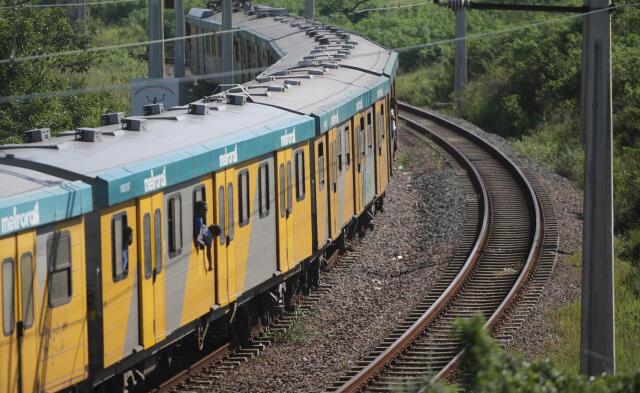Train surfing is a “game” mostly played by teenagers, in which they ride on top of a moving train
DURBAN – The dangerous and illegal practice of “train surfing” claimed the life of a teenage boy at the weekend, raising fears that the Passenger Rail Agency of South Africa (Prasa) and SAPS are unable to stop the growing trend.
A 17-year-old boy died after he was allegedly train surfing on the roof of a train in KwaMashu.
Train surfing is a “game” mostly played by teenagers in some of Durban’s townships, in which they ride on top of a moving train.
According to the police, the incident took place on Saturday morning on a train that was travelling from KwaMashu to Durban.
Provincial police spokesperson Colonel Thembeka Mbele said Sabelo Nxumalo was electrocuted while on top of a moving train.
Mbele said the train was travelling from Duffs Road when the train conductor noticed the victim on the roof of the train.
She said the conductor then alerted the train driver to stop immediately.
“Members from Durban SAPS Search and Rescue (SAR) along with Metro Police SAR, and eThekwini Fire and Rescue were then called out to the Effingham railway station.
“The body was recovered and handed over to members from the KwaMashu Railway SAPS. An inquest docket was opened for investigation,” said Mbele.
In a video taken before the accident, that was seen by the DFA’s sister newspaper The Mercury, the apparent victim is seen on top of the moving train while his friend was filming him.
He then starts dancing on the roof of the train and jumping as it moves.
The victim’s friends can be heard calling on others to join the ride, while another urges them to come down.
United National Transport Union spokesperson Sonja Carstens said they were concerned about the growing trend of train surfing, adding that they had called on communities to play their part in raising awareness.
Carstens said that, together with the Railway Safety Regulator, Transnet Freight Rail and Prasa, they had been embarking on train surfing awareness campaigns in various areas, including KwaMashu and uMlazi.
“This is done to highlight the dangers of train surfing, specifically targeting schools and communities.
“We all know that Prasa doesn’t have the ability to provide security everywhere where the train moves.
“Police should come in and assist in monitoring the railway by increasing police visibility. Prasa can’t do it alone and its the duty of the police to curb crime, as train surfing is a crime,” she said.
According to Carstens, another game called “chicken”, which was also played on the railway line, was gaining popularity in KwaMashu and uMlazi.
In this game, children lie down on the railway on their backs, wait for the train – until it’s a metre away from them – and then they jump off the railway line.
“It’s a very dangerous game and children must stop playing with their lives,” she said.
Carstens said when trains travelled through built-up areas, they slowed to a speed of 50km/h, as per the railway safety regulations.
“When the train is moving slowly, it’s easier for children to jump on and hide outside, in between coaches. When the training is moving, they then start to climb up and play this dangerous game.
“Parents should lead the campaigns in their homes to raise awareness,” Carstens added.
Prasa KwaZulu-Natal’s provincial spokesperson, Zama Nomnganga, said they were aware of the weekend accident and had seen the video.
Nomnganga said several campaigns had been undertaken to caution children and communities, but these had been in vain.
“We’ve used all the resources at our disposal to raise awareness of this matter. We have been circulating voice recordings on social media and other platforms.
“However, children are not listening. We’ve seen the video and it is shocking,” he said.
He called on parents to take it upon themselves to monitor the whereabouts of their children, and also where they play, to ensure their safety.








